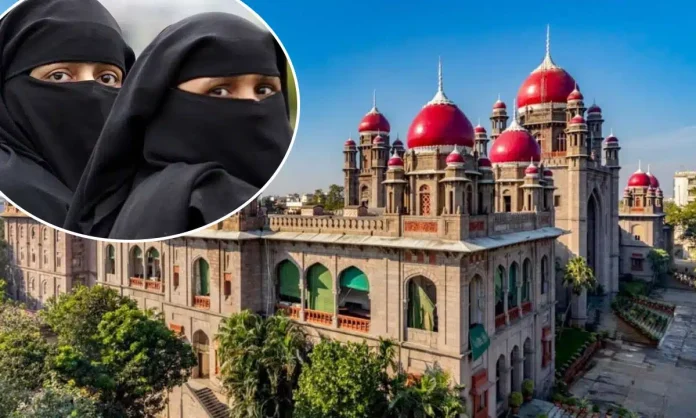JIH Shariah Council Secretary Says Court’s Interpretation of Islamic Law is Flawed
New Delhi – The recent Telangana High Court judgment asserting that Muslim women have an “absolute and unconditional” right to seek Khula without the husband’s consent has sparked serious concern among Islamic scholars. Dr. Raziul Islam Nadvi, Secretary of the Shariah Council of Jamaat-e-Islami Hind, has responded by calling the ruling “misleading” and contrary to the principles of Islamic Shariah.
The verdict, delivered by a Division Bench of Justice Moushumi Bhattacharya and Justice B.R. Madhusudhan Rao during the hearing of the Mohammad Arif Ali vs. Asma Afsarunnisa case, stated that according to Islamic law, a Muslim woman can end her marriage through Khula without requiring the consent of her husband. The court further clarified that the role of the Family Court is limited to verifying the legitimacy of the demand for Khula, ensuring that reconciliation efforts were attempted, and checking whether the woman offered to return the Mahr (dower).
This ruling arose from a petition filed by a husband challenging the Family Court’s dismissal of his objection to the validity of a Khula document obtained by his wife through a private organization, Sada-e-Haq Shariah Council, after he had refused to grant her Khula.
However, Dr. Nadvi warned that media interpretations of the judgment have led to confusion. If the court’s interpretation implies that a Muslim woman can simply walk out of the marriage, declare Khula on her own, and remarry without formal procedures involving the husband or a judicial process, then such a reading is “not a correct representation of Islamic Shariah.”
Khula and Its Context in Islamic Law
Dr. Nadvi explained that marriage in Islam has dual aspects: one as an act of worship and the other as a social contract (Mu‘āhada). Like other contracts, it can be dissolved when necessary. While a husband can unilaterally dissolve a marriage through Talaq, a woman who wants separation can seek Khula. If both mutually agree to part ways, it is termed Mubarat.
Islam places the financial and social responsibilities of marriage largely on the husband—he provides the Mahr, sustains the wife financially (Nafaqah), and ensures housing. Hence, Islamic law differentiates between Talaq (initiated by the husband) and Khula (initiated by the wife, but requiring mutual agreement or judicial intervention).
Dr. Nadvi emphasized that a woman is indeed entitled to seek Khula if the relationship becomes unbearable or the husband is abusive. She can request her husband to grant it, and if he refuses, she must approach a Shariah court or Islamic judicial body to obtain a formal dissolution.
Importantly, Khula is treated as Talaq Bā’in (irrevocable divorce), meaning the couple cannot reunite unless they perform a new marriage contract. Also, while a husband cannot demand return of the Mahr in Talaq, in Khula the woman must return the Mahr if the husband demands it.
Absolute Right Not Supported in Islamic Practice
While Islamic history—including the time of Prophet Muhammad ﷺ and the rightly-guided caliphs—does feature instances where women were granted Khula upon request, it never implied an unregulated, unilateral right to end the marriage. Dr. Nadvi stated that a woman cannot simply declare herself divorced and proceed to remarry without following due process.
If a husband refuses the request for Khula, the wife must seek intervention from an Islamic court, which has the authority to compel the husband to comply. However, in India, the Dar al-Qaza (Shariah courts) operate under limited authority. There are nearly 100 such courts functioning under the All India Muslim Personal Law Board across the country, resolving family disputes within the framework of Islamic law.
Dr. Nadvi stressed that marital disputes should ideally be resolved amicably by the couple themselves or with help from family elders. If reconciliation fails, the matter should be referred to Dar al-Qaza. The Qur’an instructs that both continuation and dissolution of marriage must be conducted honorably and with mutual respect.
Court’s Reference to Qur’an Misinterpreted
The Telangana High Court cited verses 228 and 229 of Surah Al-Baqarah to support its ruling. However, Dr. Nadvi contended that while the Qur’an does indeed allow for Khula, it does not grant women an absolute and unconditional right to dissolve the marriage independently. The process must still involve the husband’s consent or a judicial ruling.
Dr. Nadvi also referred to his detailed research article on the topic, published in the January-March 2023 issue of Tahqeeqat-e-Islami, a quarterly journal from Aligarh. The paper provides an in-depth Islamic legal perspective on Khula and can be accessed at the following link:





